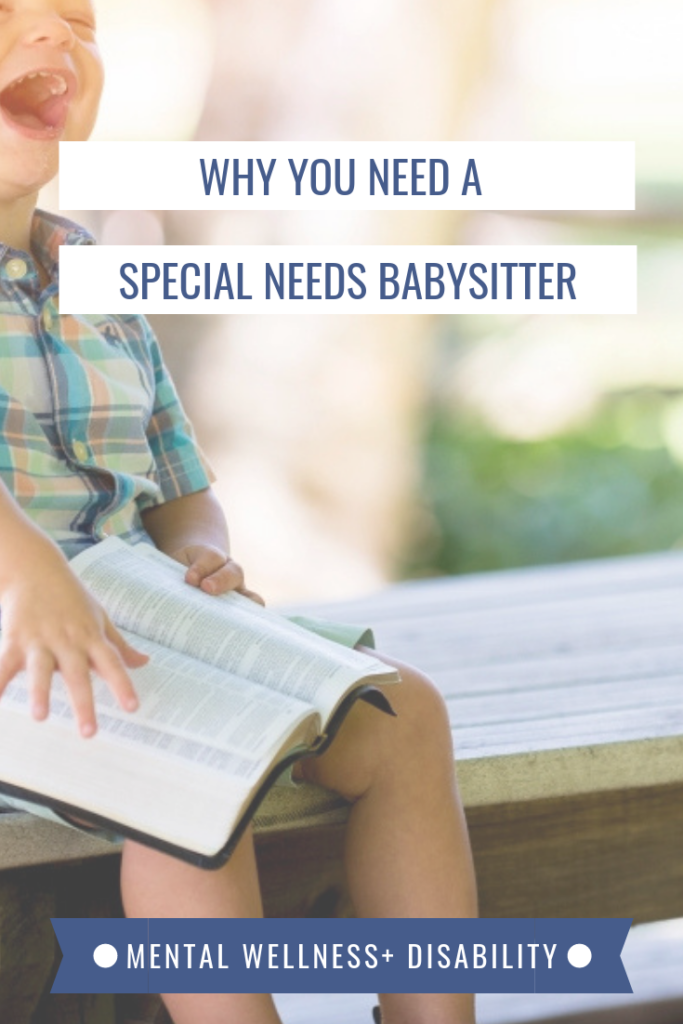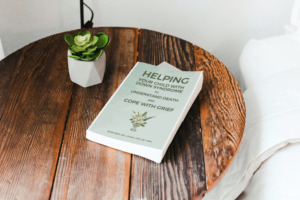Having a reliable babysitter is critical for your marriage when your child has disabilities
Special needs parents in couples counseling are usually surprised when I want to talk in detail about their family’s babysitting situation.
They say “We came here to learn how to connect and communicate. We want to compromise when we don’t see eye to eye on raising our child with special needs. Why are we going to spend a whole session talking about babysitters?!”
I explain that, in many ways, parenting a child with disabilities is a lot like running a marathon.
Parents of kids without disabilities know that the lack of sleep and the worries about day to day safety will be over soon enough, and this knowledge alone gives them the fuel to keep going until their kids are for all intents and purposes self-sufficient. For special needs parents, it isn’t so simple.
That’s why remaining connected to your spouse, the one person who shares the day to day challenges and triumphs of raising your child, is crucial. And that kind of real connection is only possible when there is distance between you and the daily grind – a defined space and time that’s just for your marriage. It goes way beyond a regular ‘date night’.
Hence, your babysitter is a key element of maintaining your marriage when you’re a special needs parent.
You need to have enough trust in this person that you can leave your child in their care and then put your child’s needs out of your mind, just for a while, so that you can devote time to listening to and connecting with your spouse. Read this post for ideas on how to reconnect and rekindle intimacy. For now, we’re just trying to get you out of the house together!
I understand that the thought of leaving your child in someone else’s care might feel overwhelming
If you are struggling with this first step, with feeling hopeful that you can find a babysitter you trust enough to leave your child with them, first know that you’re not alone. Many parents struggle with this. For the sake of your personal well being, and for the sake of your marriage, I urge you to spend some time reconciling your guilt and unrest. Maybe you can do this alone, but if you need a professional listener to help you sort through your internal struggle, please seek out a counselor to help you get to where you want to be.
Where to look
OK, you’ve decided that you’re ready to find a babysitter…now how do you find them?!
Here are some places to look for a babysitter who will work with a child with special needs:
- Care.com and sittercity.com have special needs divisions
- Some metro areas, like Boston and Denver have special needs babysitting agencies. I’m hopeful that in the coming years, more of these specialized agencies will spring up!
- Your child’s school (perhaps a former teacher or aide familiar with your child would be earning some extra babysitting money, especially in the summer months)
- Local university departments specializing in disabilities (for instance, when I was earning my Masters at UNC’s Department of Rehabilitation and Psychology, our program director often forwarded emails she received from parents looking to hire babysitters who might be familiar with their child’s needs)
- Hospitals (nurses and CNA’s can be fantastic babysitters if your child has complex medical needs)
- Other special needs families (maybe an older sibling of your child’s classmate would be interested, or maybe they can recommend a babysitter they’ve used in the past)
- Asking other people who interact well with your child. Maybe this is a Special Olympics coach, but maybe it’s the bagger at the grocery store who just seems to ‘get’ your child
Of course, you should always thoroughly investigate any potential babysitters. In addition to running a background check online, in North Carolina, you can verify whether they’ve ever been listed on the Health Care Personnel Registry. This registry is maintained by the Department of Health and Human services, and lists pending investigations and substantiated findings of abuse, neglect, misappropriate of property, diversion of drugs, or fraud. All you need is the last four digits of their social security number, their full name, and their permission.
Once you’ve found a babysitter, set them up for success
Depending on your child’s needs, it may be helpful to hire the babysitter as a ‘parent’s helper’ a few times. This way, you can both become comfortable with them caring for your child while you’re still available to answer questions and model any behavioral interventions or medical routines that are complicated.
The trick here, of course, is to allow the babysitter time and space to handle any difficult issues that come up without stepping in and solving the problem yourself. Be strict with yourself; tell the babysitter that you’re only going to intervene if they explicitly ask you to, and hold yourself to this.
Even if you do this and they seem very comfortable and competent, you should still set your babysitter up for success when they come to babysit solo.
Print out:
- Schedules/routines
- Medication instructions, including allergies
- Behavioral/communication strategies
- Emergency/medical contacts
- Tips for using household appliances/safety features (such as door alarms)
- A detailed ‘call me if’ list (this will obviously vary child to child, but it might be “Call me if my child: cries for more than 20 minutes or has more than 2 seizures or if they begin head banging”)
Other tips:
- If your child is prone to bolting in times of discomfort, ensure that they’re wearing any safety ID that you typically use in times when they’re likely to run, even if the sitter isn’t planning to take your child out of the home (if you’re looking for ideas, check out my Pinterest board on safety gear and hacks, there are some pretty amazing options available these days)
- One strategy that I learned from a seasoned special needs babysitter that I LOVE is to have the babysitter bring your child a ‘gift’ that is actually a favorite toy of the child’s wrapped for them to ‘open’ that they can then play with together.
- Especially in the beginning, timing is key. While evening hours may be best for a date, if your child’s bedtime routine is especially difficult for them, maybe you and your spouse can enjoy a few breakfast dates, so that your babysitter has the benefit of caring for your child during a time of day when they’re less prone to meltdown. Perhaps you can even coordinate for your child and the sitter to watch a movie in one theater while you and your spouse take in another movie down the hall.
As with everything else special needs parenting, it may not look typical or how you expected it to at first. Try to have patience, and know that the more you commit to making real time for connection with your spouse, the easier it will become for your whole family over time.
The most important thing about hiring a special needs babysitter
You must trust your sitter. If you’re going to truly use this time to recharge and foster intimacy with your spouse, then it’s so, so important that you be able to leave your child and trust that they will be well cared for. This will probably not be easy (or even possible!) the first time you leave your child with a new sitter.
Just try to keep this ‘why’ in your mind, and commit to continuing to make this time for your marriage. There will be mishaps along the way. Accept them now; it will make it so much easier to deal with them when they inevitably happen! Know that this doesn’t mean that you, or your child, or the sitter have failed. It’s just a part of the process of building trust in another caregiver, and of allowing yourself time with your spouse that isn’t clouded by worry about your child.
If you know someone who should read this, please use the social buttons to share it with them!













